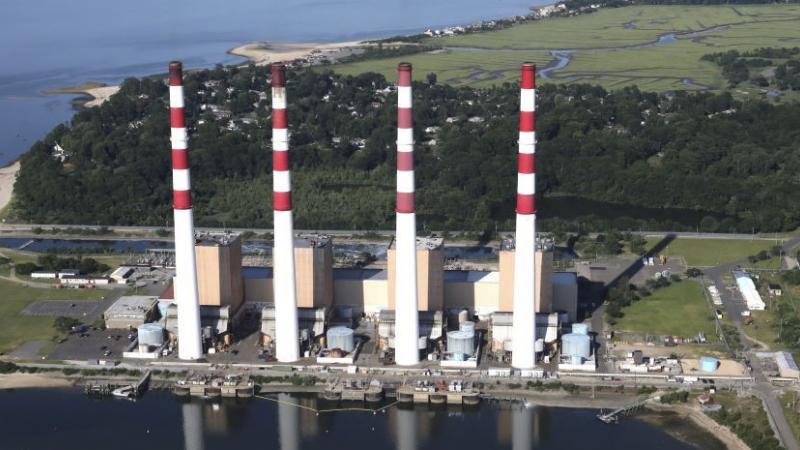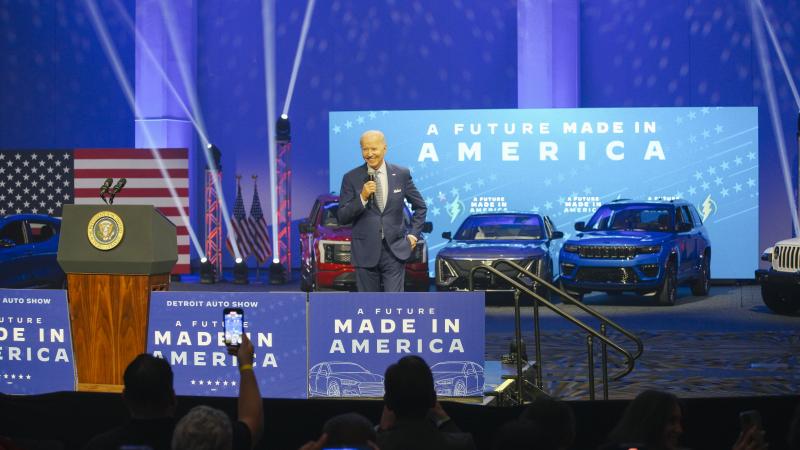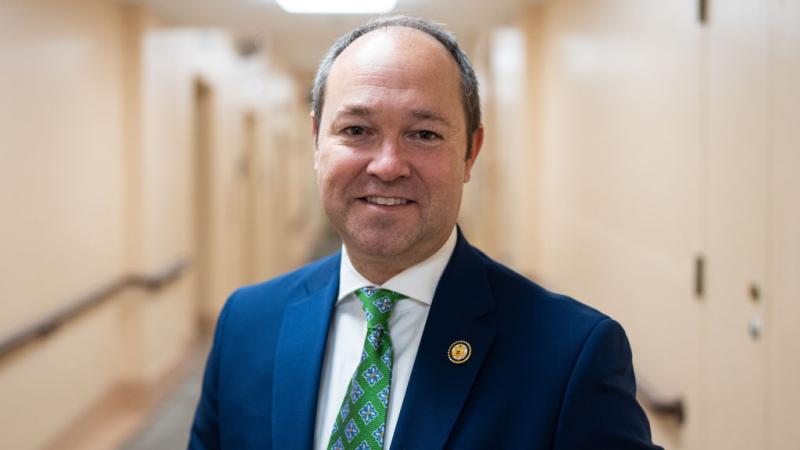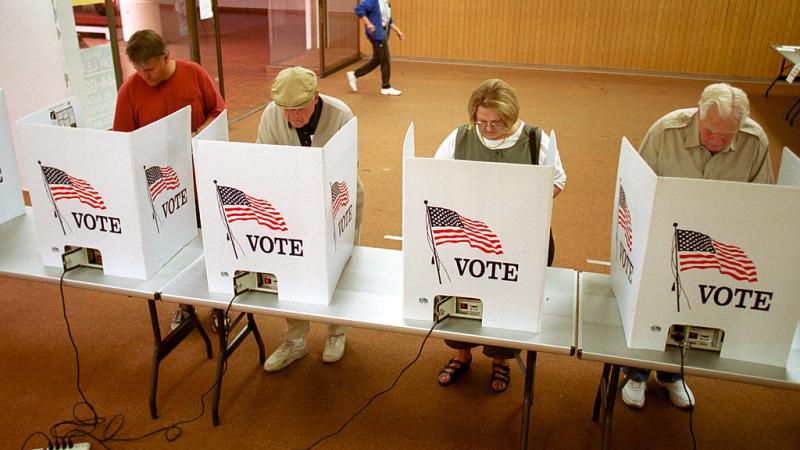Public, private, nonprofit applicants competing for Biden's $7 billion clean hydrogen investment
Applications from finalists for the billions of federal dollars available to support "hydrogen hubs" were due Friday.
A broad range of applicants from the private, public and nonprofit sectors are finalizing proposals to the U.S. Department of Energy to help develop "hubs" to produce clean hydrogen that "has the potential to decarbonize multiple economic sectors," according to the department, "including heavy-duty transportation and steel manufacturing."
Funds for the program were approved in last year's bipartisan infrastructure law, which included a multibillion dollar initiative headed up by DOE to develop "networks of hydrogen producers, consumers, and local connective infrastructure to accelerate the use of hydrogen as a clean energy carrier."
The DOE described the production as being "crucial" to the president's goal of a "100% clean electrical grid by 2035" and zero carbon emissions by the year 2050.
In September, the department's Office of Clean Energy Demonstrations announced a $7 billion funding opportunity to develop hydrogen hubs around the country. In response to the notice, according to the Clean Air Task Force, OCED received 79 concept papers "spanning every region of the United States" from applicants "led by individual companies, universities, nonprofits, and city/state government consortiums."
"In these Concept Papers, applicants requested nearly $60 billion in federal funding —roughly eight to nine times the size of DOE's $6-7 billion solicitation," according to OCED. "Proposed projects by the applicants included in aggregate, more than $150 billion of their own capital alongside the DOE's federal investment."
The office winnowed the 79 submissions down to 33 who were asked to submit final applications by Friday, April 7.
The push for a breakthrough in clean hydrogen research is fueled by claims that utilizing the chemical element could alleviate so-called climate change, since hydrogen consumed in a fuel cell emits only water vapor and air.
Efforts thus far to convert hydrogen into fuel have been tireless but largely unfruitful. Back in 2003, President George W. Bush rolled out a $1.2 billion hydrogen fuel initiative in an effort to decrease America's reliance on foreign oil for vehicles.
Despite continued efforts to develop hydrogen fuel under the Obama administration, he too was ultimately unsuccessful, as he eventually slashed $100 million from the hydrogen fuel cell program in 2010.
Follow Addison on Twitter.














